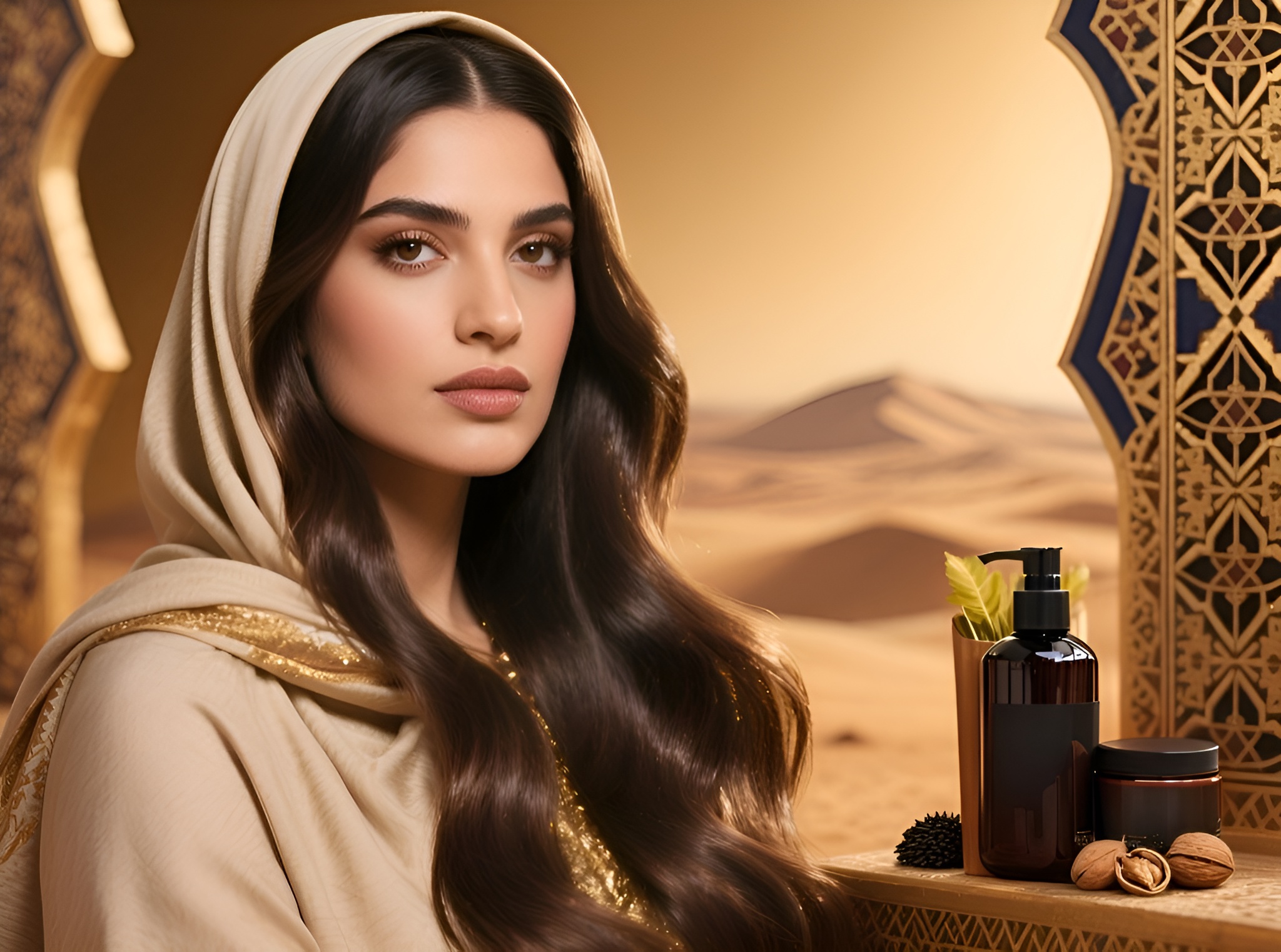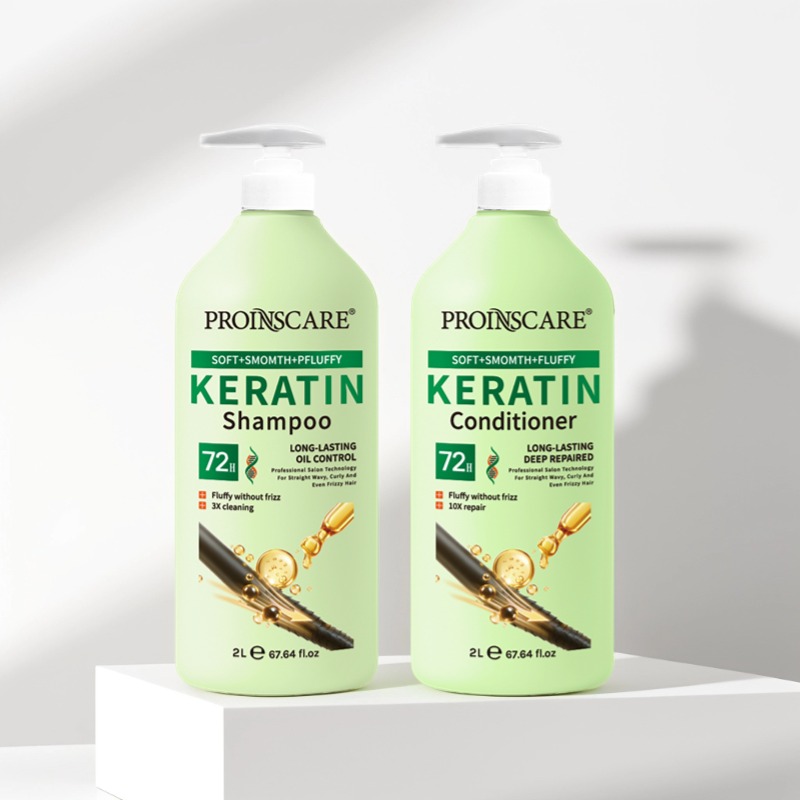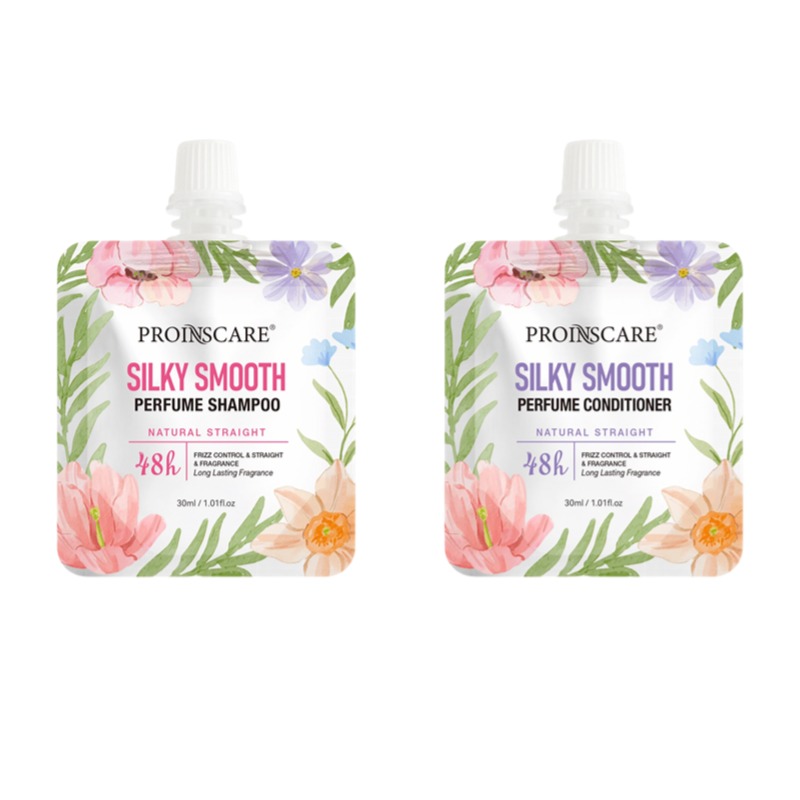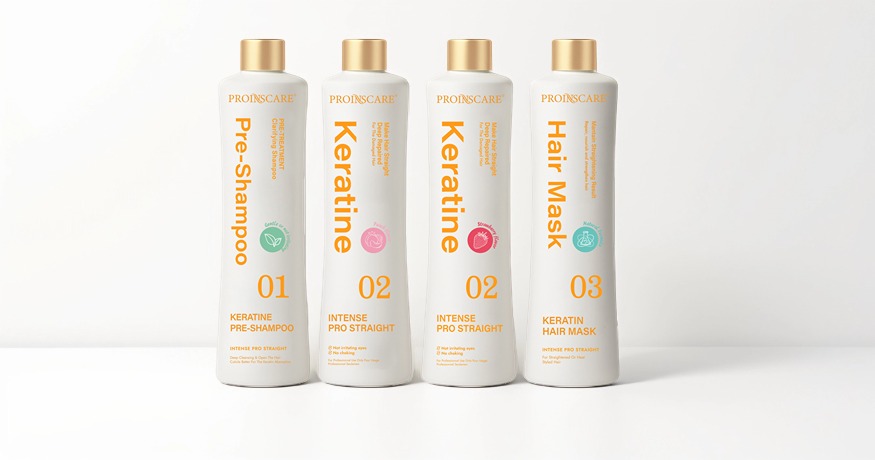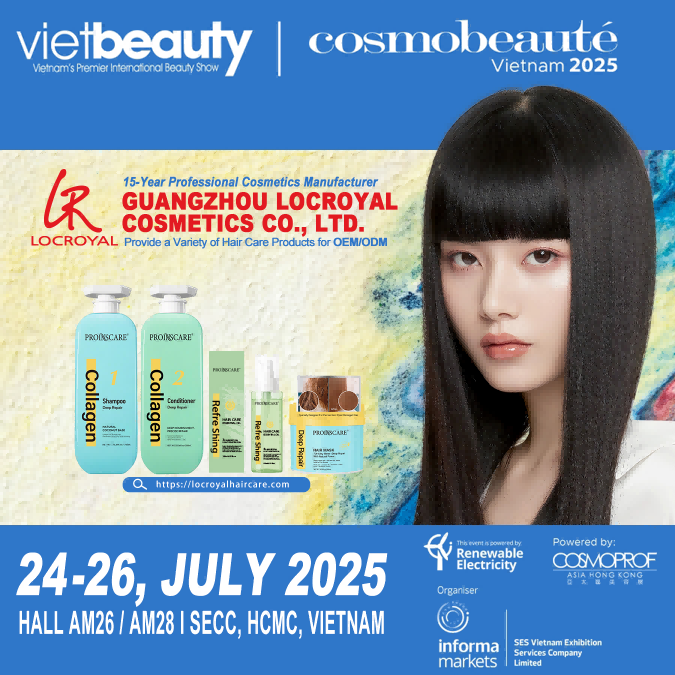The world of Middle Eastern hair care is also evolving. Customers are in search of more than chemical-based products. Consumers wish to know more about what goes in their shampoo bottles, with many wanting gentle, natural ingredients that have a history behind them.
Here, we explore the top 5 hair care ingredients that are gaining popularity among consumers throughout the region. First, though, let’s discuss why this is happening and the implications for brands and businesses that are struggling to keep pace.
The Growth of the Middle East Hair Care Market
The Middle East’s hair care industry is developing at an incredibly rapid pace, and it doesn’t look to slow down. Dubai, Riyadh, and Cairo aren’t simply beauty and fashion hubs—they’re also where hair care and skincare trends begin to emanate from.
A Growing Market with Big Potential
The hair care market in the Middle East & Africa is experiencing growth at an unprecedented rate as more individuals invest in beauty and wellness, according to experts. As incomes rise and there is greater realization about self-care, people are making a switch towards more premium products, normally from local or domestic brands that have greater insight into their needs.
This is fantastic news for whatever hair care manufacturer is considering entering or expanding in that part of the world. This is an enormous opportunity—and one available to someone who is familiar with consumers in the local area.
A New Demand for Natural Hair Care Products
One of the biggest trends is going in the direction of natural hair care in the Middle East. Customers have had enough of hair care products full of chemicals. In surveys, nearly 60% of Middle Eastern customers want hair care that is chemical-free from additives like parabens and sulfates. About 30% go one step further, going so far as to steer clear of products that have preservatives.
So what is that going to look like if you’re a Middle East B2B cosmetics supplier or a private label hair care manufacturer? That will be that your product lines have clean, natural, and effective ingredients that not only address modern demands but also traditional cultural requirements.
So why are such natural ingredients important to consumers in that part of the world?
Why Natural Hair Care Ingredients Matter to Middle Eastern Consumers
In the Middle East, hair care is not just about image—it’s about health, identity, and heritage. Consumers want hair care ingredients that don’t just work but also are safe and meaningful.
Natural Ingredients Are Seen as Safer and More Trustworthy
Consumers are better educated. Consumers actually read labels. Consumers actually read ingredient lists. If their product is full of chemically named ingredients on their list, their credibility is lost. Ingredients like argan oil and black seed oil, though, are well known throughout far and wide, not only for their functionality but for their historical roots in that nation’s heritage.
Natural ingredients also pose less risk. They will most likely not produce allergic reactions, scalp irritation, or permanent harm. Some even prefer product ingredients that their own people used in their own culture—ingredients that their parents, perhaps even their grandparents, used.
This legacy and trust factor is one of the primary reasons that certain ingredients have been belle-of-the-balls. So, which ingredients are in demand right now?
Here’s looking at it.
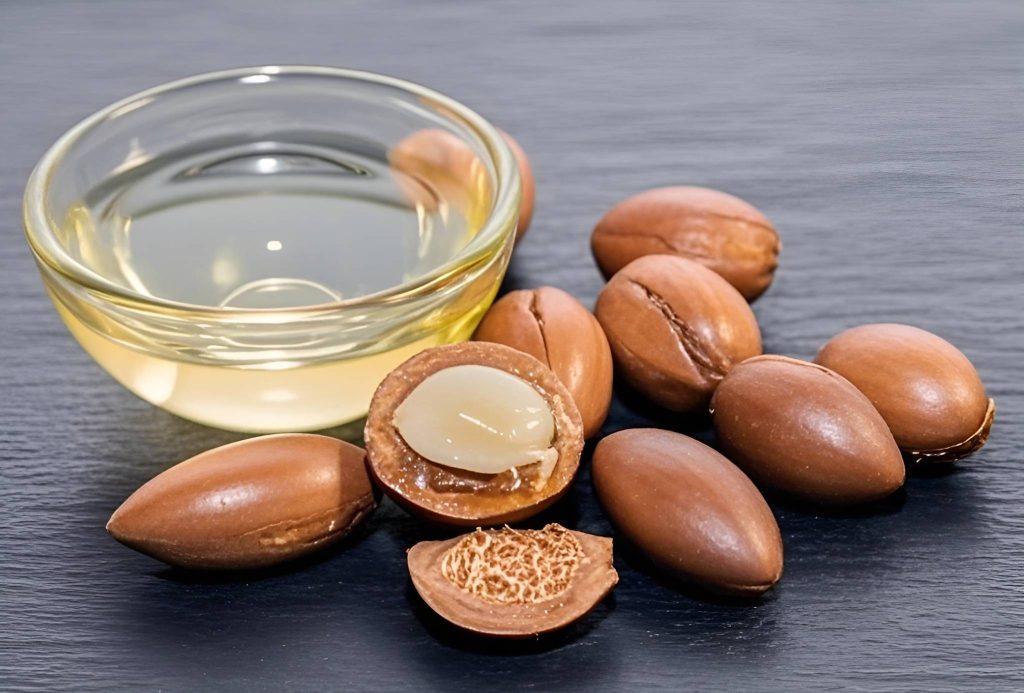
1. Argan Oil: A Staple in Middle Eastern Hair Care Routines
Argan oil is one product that is universally loved. Its moniker is “liquid gold.” Argan oil is extracted from argan trees that are primarily found in Morocco.
How Argan Oil Works
Argan oil is full of vitamin E, antioxidants, and essential fatty acids. In combination, they repair damaged hair, remove frizz, and add shine. Argan oil also guards hair from heat, as well as from thermal hair tools, that most customers use every day.
Based on its effectiveness and natural origin, argan oil is one of the most in-demand ingredients in the Middle East hair care market. Argan oil adds that luxurious feel to a product whether in shampoo, conditioner, or leave-on treatment.
And don’t even begin to mention women—most men’s grooming products now have it too.
But argan oil is not alone in being naturally exceptional.
Black Seed Oil: A Traditional Ingredient with Modern Benefits
Next, there is black seed oil, or Nigella Sativa. Black seed oil has been utilized for centuries, not just for hair, but also in traditional medicine.
Reasons Why Black Seed Oil is So Powerful
Black seed oil is full of antioxidants as well as anti-inflammatory components. That is why it is an excellent choice for thinning hair, dandruff, and a dry scalp. Most consumers report that it grows their hair more quickly and makes their hair stronger.
More interesting still is that black seed oil carries very high cultural value in the Middle East. In fact, it is even mentioned in historical Islamic writings as being used as medicine, which is an added value in the eyes of most buyers.
For hair care private label manufacturers or businesses looking to align with a hair care business, the inclusion of this oil can be of great value in terms of differentiation.
So, what follows these two most typical oils?
3. Rosewater: Sweetly Fragrant, Light, Relaxing
Rosewater is gentle and calming. Rosewater calms inflamed scalps and moisturizes hair. Some women use it in spray form to invigorate their hair at midday. Also, it possesses a light floral fragrance, but not in terms of artificial perfumes.
This product is most widely utilized in countries like Lebanon, Iran, and Saudi Arabia, where rose-based beauty products have been part of their culture.
4. Henna: Colour and Care in One
Henna is more than just a widely used natural color dye. Henna is used to color hair naturally for centuries without chemicals. But it does not stop there – it also fortifies hair so that it is less susceptible to breakage or shedding.
Henna is not just an ornamental aspect to beauty in the Middle East—it is an aspect of culture and celebration.
5. Pomegranate Oil: The Star of the
Pomegranate is not quite as widely recognized as argan or black seed oil but is on the rise. Pomegranate is packed with antioxidants that restore damaged hair, bring thickness to thinning hair, and add a natural shine.
For businesses wanting to try new things, pomegranate oil is an excellent product to have on offer. Consumers constantly seek products that appear new but still fall under natural hair care in the Middle East.
Now, let’s talk about how to use every one of these ingredients to create winning products to offer in the region.
How Hair Care Manufacturers Can Create Products for the Middle East
If you have a business in manufacturing cosmetics or part of a middle east cosmetics, being attuned to local tastes is going to make all the difference. Just mixing some natural ingredients is not going to cut it. That is about making products that feel personal and trusted.
Formula Design That Matches Local Needs
To perform in this market, your product compositions have to have some of the best hair care ingredients, as I have mentioned above. That is argan oil, black seed oil, and rosewater, among others. Besides, products have to:
- Free from parabens, soaps, and
- Suitable for dyed or chemically treated hair
- Developed for common regional hair concerns, including dryness and frizz
Packaging That Speaks the Local Language
Packaging matters in the Middle East. Products have to look premium and high-end, including colors like gold, white, and dark jewel tones. Products should both have Arabic-language labeling, in addition to English labeling, with packaging design that reflects cultural requirements.
For example, a shampoo made from henna and black seed oil can be put in a traditionally inspired bottle but with modern typography—this juxtaposition of the old and new appeals to a wide range of consumers.
Marketing that Resonates
Successfully marketing in this local area involves social media, online retailers, and local influencer marketing. Social media like Instagram, TikTok, and YouTube provide wonderful platforms upon which to tell stories about ingredients, where to get them, and why.
Consumers in the Middle East are interested in more than just results—they need to have an affinity for the brand, too. And storytelling is a means of getting there.
Now that we have an idea about what constitutes an excellent product, let’s recap.
Conclusion
The Middle Eastern marketplace is ripe for opportunity for manufacturers and companies that see value in culturally grounded, natural hair care ingredients. From argan’s warm richness to black seed oil’s rich heritage, consumers buy products that feel safe, familiar, and beneficial.
By utilizing ingredients like rosewater, henna, and pomegranate oil, as well as manufacturing high-end private label hair care products, companies can instill trust in consumers as well as brand awareness across this fast-evolving country.
If you’re in the hair care manufacturing or supply business and have aspirations to enter the Middle East, here’s some advice: it starts with ingredients. Use what people adore and trust—and make something amazing.
LocRoyal is a professional hair care manufacturer; we have our own brands, ” PURC ” and “PROINSCARE,” and can offer private label hair care product customization services.
FAQ Section
1. What are the most popular hair care ingredients among Middle Eastern consumers?
The most popular hair care ingredients utilized in the Middle East include argan oil, black seed oil, rosewater, henna, and pomegranate oil. These products are being utilized for their repairing, moisturizing, and protective benefits for hair, particularly in drying Middle Eastern weather.
2. Why is natural hair care needed in the Middle East?
Middle Eastern consumers are looking for natural hair care more and more because there is growing concern regarding chemical additives along with a strong cultural affinity for traditional ingredients. Natural products are believed to be safer, more effective, and more aligned with local standards of beauty.
3. What services does LocRoyal offer as a hair care manufacturer?
LocRoyal Haircare is an exclusive hair care manufacturer that offers clean, efficient, and culturally conscious formulations. The company formulates customized hair care products with high-grade natural ingredients specially designed to address Middle Eastern hair needs and properties.
4. Does LocRoyal have private-label hair care products?
Yes. LocRoyal offers full private-label hair care product solutions to help companies create and launch custom-branded shampoos, conditioners, treatments, and oils that incorporate natural ingredients like argan oil and black seed oil.
5. Is LocRoyal a reliable Middle East B2B cosmetics supplier?
Indeed. Being one of the top B2B cosmetic distributors in the Middle East, LocRoyal provides distributors, retailers, and salons with high-quality, customizable products designed to fit the local market, along with OEM and packaging services.

